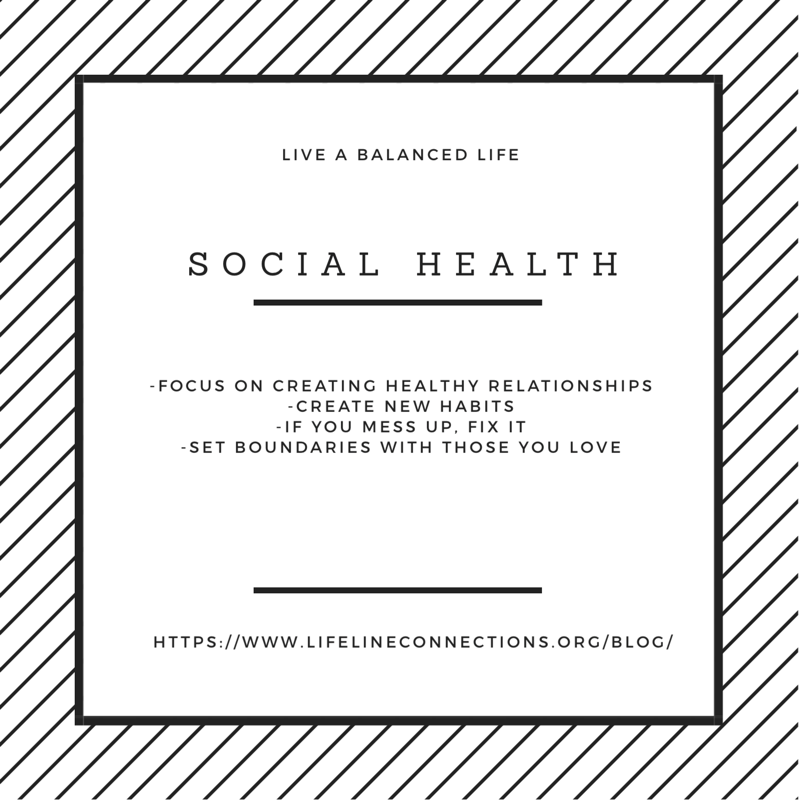
Live a Balanced Life: Social Health
Part of living a balanced life this year is making socially healthy decisions. This aspect of health is trickier than others because we all need to find a balance between what we can control and what we need to allow others to control.
On the University of New Hampshire’s website, they describe the signs of a person who is socially well. Essentially, it sounds like the type of friend YOU would like to have. A person who is assertive but not passive or aggressive; a person who can properly balance their social and personal time to fit their needs; someone who is consistently the same type of person in all situations; a person who cares about and is engaged in their community; a person who appreciates diversity and treats everyone respectfully; someone who can not only begin but also maintain relationships; someone who can create and respect boundaries; someone who is comfortable with having fun; and a person who has a healthy supportive network.
Even if this doesn’t sound like you, don’t give up on trying to develop healthy relationships. It may seem like some people are much more natural in their interactions with others, but really, all it takes is practice and a little trial and error. Here are a few tips to take with you this month as you try to make some goals for your year of developing a balanced life.
Create a New Habit
Let’s say you struggle with being the same person no matter who you are with- as though you are much better at reflecting a person’s personality to fit in rather than just being who you are. You can break this habit just as you would any other, by consciously developing a new habit. And keep in mind that most people don’t want a friend who is exactly like them, they just want a friend who treats them with respect and appreciates who they are. When you practice being that kind of person, it won’t be hard to see that they will be respectful about who you are as well and you can develop a friendship that has complementary parts.
If You Mess Up, Fix It
If you mess up, that’s okay. If you accidentally hurt someone’s feelings or you are worried that they didn’t like something you said, be honest about those feelings. Take the risk to tell them that you are working on being a better friend and that you might need some help to know how you can be better for them. This action alone indicates that you care about them and the friendship and it can often deepen the relationship more than if you stay on the same level you were on before.
Set Boundaries
I’ve often written about setting boundaries with people you love but have hurt you in the past. However, setting boundaries- even small ones- early on is quite helpful when developing a new friendship or romantic endeavor. If someone wants to go out all night, but you know your recovery could be compromised in this process, it’s okay to let them know. If they continue to pressure you or are not respectful of that boundary, this is a sign that they might not be the right friend for you.
Substance use can cause a lot of distress on your relationships. Getting help is the best chance you have at starting over with your life and developing the right skills to maintain and repair those relationships. Lifeline Connections is dedicated to serving the people of the Vancouver, WA and Portland, OR area with our many programs which include residential treatment. We care about our patients so much that we do a custom treatment plan, you are paired with a recovery coach, and your entire person is treated not just the substance use. If you or a loved one are ready to take the next step, please call or email us. We look forward to providing you with the information you need.
Phone: 360-397-8246 ext. 7580
Email: [email protected]
